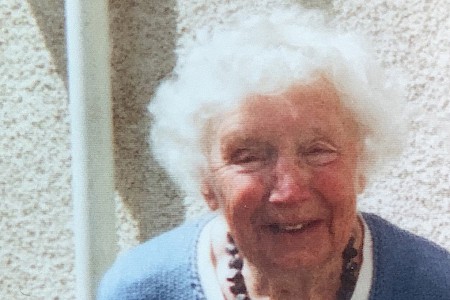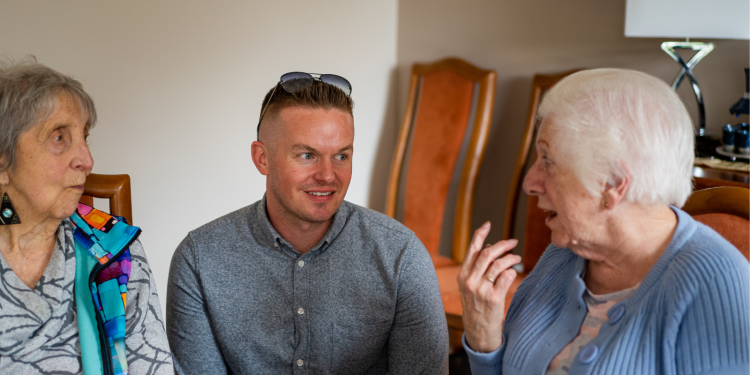Managing difficult conversations was the third most requested training topic by volunteers who responded to the training survey in May’s edition of Re-engage Matters.
When an older person is feeling distressed, simply feeling listened to can be very powerful.
As a Re-engage volunteer, your role is to provide a listening ear, not to fix problems. Telling an older person to look on the bright side or changing the subject can feel dismissive. Instead, you should use your listening skills to help them talk through their feelings.
Sometimes conversations can be difficult, and an older person may struggle to engage. It’s important to be patient, it may be that they’ve lost the art of conversation and it may take them some time to regain their confidence.
You may also find your conversations difficult because the older person is quite negative, for example talking a lot about their health concerns. It's important not to be dismissive and to listen as best you can. However, sometimes helping to steer the conversation to a more positive topic can help lift the older person's spirits and distract them from their worries.
Ending a conversation
The conversations that you have with an older person will be extremely important to them, and possibly the only social contact they’ve had for some time. Ending conversations can be challenging, both for you and for the older person.
Summarising can be a useful way to end a conversation, for example by saying something like:
-
“How do you feel about what we’ve talked about today?”
Or you could use phrases that can help signal that you need to bring the conversation to an end such as:
-
“Before we finish…”
-
“We’ve been talking for a while now…”
-
“Just before we say goodbye, shall we…”
Another way to finish the conversation is by looking ahead to what the older person will do after you have finished speaking, even if it's something as simple as having a cup of tea or getting something to eat.
Remember to always end the conversation by reminding the older person of when you’ll speak to them next.
Looking after yourself
After you’ve had a difficult conversation with an older person, it's quite likely that you may be feeling upset or distressed. It’s important that you take steps to offload those feelings and talk to someone about it. Since the older person has the right to privacy, you may not be able to talk about their situation fully with your family or friends, but you can always talk to your group coordinator or the Re-engage team.
Things can affect us more deeply than we expect them to and that's completely normal and understandable. Please don’t feel that you should be able to manage these feelings on your own, or that you are burdening anyone else with them. It's essential to seek support from the Re-engage team after a conversation that has left you feeling distressed. You can contact the Re-engage team by emailing knowledge@reengage.org.uk or by calling 020 7240 0630 (office hours 9am-5pm Monday to Friday).
To find out more
To learn more about managing difficult conversations, take a look at the addressing difficulties training module on the Re-engage website.
-
View
More news

Never too old to volunteer
Volunteers like Marigold are at the heart of our services. Discover why she still loves to be involved into her 90s.
By Re-engage

Where do they all come from?
As Meryl Davies, CEO of Re-engage, prepares to step down, she reflects on how the stigma of loneliness has reduced in recent years and how poignantly, that has led to an increase in the number of people who are likely to say they are lonely. Never has the work of Re-engage been more important. The charity has an impact on people every day, making sure that they are able to find each other and find common ground and the joy of connection.
By Meryl Davies

